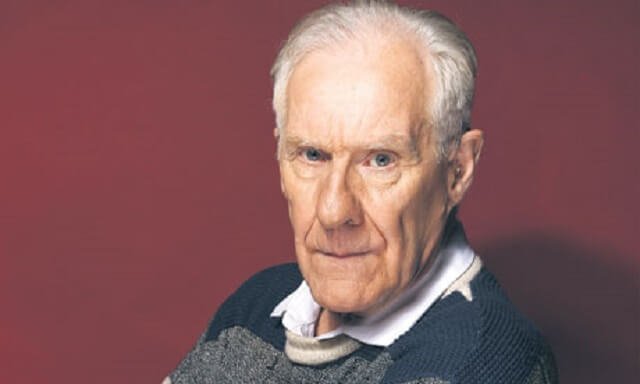IUC Dubrovnik 2009
In today’s era of blurred global political constellation and predominant sense of vast political and religious disappointment in most of western societies, the notions of ethics and politics are also obscured and covered with a thick layer of ignorance or misinterpretation. It seems that contemporary definitions of what is political and what does ethical stance really means in regards to its enforcement in everyday life have never been further from classical philosophical tradition. Inexorably, today one does not expect implementation of ancient views on politics as praxis in community founded on rational agreement or ethical deeds based on self-consciousness and moral well-being. In the same way as the ideal of eudaimonia is neither applicable nor achievable in today’s postmodern and biopolitical assemblage, the definition (and reality) of politics is also far away from Rousseauean, Hobbesian, Hegelian or even Marxist tradition. In that sense, the main goal of this presentation is to rethink ethics and politics in the context of globalized world deprived and dispossessed of positive values that those two important terms have always been closely related to. In order to discuss the problem of ethico-political disenfranchisement I will analyze some recent contributions and topics that stood out as cornerstones in debate on heteronomous ethics and politics of resistance. The main focus will be on idea that those words can and ought to be co-related, but on the other hand, stringently separated and reproached with new philosophical vocabulary. Bluntly speaking, this can be understood as an effort of questioning the concept of ethical commitment which might be applicable to the radical political re-invention of new emancipatory subjects.
Among many philosophers who have extensively analyze link between ethics and politics in recent years or decades, I will focus on three of them, Alain Badiou, Simon Critchley and Emmanuel Levinas. Moreover, to elucidate the tensions in the relation between ethics and politics, it is of crucial importance to make some reference to classical thinkers such as Kant, Hegel or Marx. Before sketching the concept I would like to endorse, a few remarks on terminology. Although these days one might find newspaper articles on president Obama’s metapolitics, and despite the fact the same term is vaguely explained even in the internet edition of Dictionary of difficult words, metapolitics in the title of this presentation refers generally to philosophical meta-perspective of politics. More precisely, and to some extent simplified, the expression habitually denotes a method of analyzing political ideologies from the viewpoint of other political ideologies. Metapolitics argues that one of the main tasks of contemporary thought is to abolish the idea that politics is merely an object for philosophical reflection. For example, Badiou who wrote the book under the same title indicts this approach, which reduces politics to a matter of opinion, thus eliminating any of its truly radical and emancipatory possibilities. Badiou distinguishes between politics (negotiation, debates, struggle and decision-making related with typical structures and conventions of laws, elections, states, governments, parties, committees) and metapolitics which thinks through the philosophical consequences and truths that appear because of political events. For him, politics is to be understood as metapolitics and not simply as management of government. On the other hand, for Critchley it designates the heart of a radical politics, so-called “meta-political ethical moment that provides the motivational force or propulsion into political action”. His main argument in the book Infinitely Demanding thus follows famous Kantian motto which Critchley paraphrased in a sentence “if ethics without politics is empty, than politics without ethics is blind”. This position is in some ways compatible with Derrida’s notion of ethics that makes unconditional demands and politics whose aim should be articulation of responses to that demand. Expanding the reach of ethics beyond Kant and his notion of duty, Derrida, according to some authors, fails to articulate politics that can provide the conditions for ethics.
In the political reading of Levinas, for instance, metapolitics would refer to the ethics as disturbance of the political status quo. Another use of this phrase can be found in Jacques Ranciere’s analysis of Marxism where he writes on Marx’s metapolitics, arguing that relation of politics and philosophy cannot be reduced to current ongoing attempt of finishing with politics, of abolishing the scandal of thinking that is proper to politics, i.e., the activity of disagreement (which is the title of his seminal work). Rancière analyses three major figures of political philosophy – archipolitics, parapolitics, metapolitics – presented under philosophers Plato, Aristotle, Marx. All three of them, according to him, neutralize the theoretical scandal of politics in the rationality of disagreement. Rancière’s argument could be therefore concentrated in the following thesis: philosophy becomes political in order to both suppress and regulate this conflictual rationality. In short, probably the best practical definition of metapolitics has been given by Badiou: metapolitics must speak of the situation as we find it, the very concrete and particular situation; metapolitics is effective inasmuch as we are given a means by which the state of the situation may be questioned, measured and put at a distance which invariably opens up the possibility of politics as thought-praxis. After these introductory notes on terminology and brief outline of the framework, it is indispensable to formulate main question: is there a proper theoretical and practical link between metapolitics and ethics in today’s world since one might argue that politics is no longer ethical and ethics is shamefully reduced to a philosophical discipline without any relevance for actual social activities, be it merely the personal moral guideline or concrete enactment of duty and social commitment? In classical tradition, for example in Kantian philosophy, morality and politics do not come into conflict because ethics places limits on what can be done in politics. In addition, Kant believed that only those moral constrains that can be imposed should be the part of politics. Therefore, to understand how ethics and metapolitics might intersect, the question of their possible conflict is the first to be considered.
If we ask a question how to demonstrate there is no conflict between ethical and political, Kant would probably answer that we are always free to act ethically and that politics is application of morality. However, in most of the recent contributions of the topic, the emphasis has not been put on (im)morality of politics as such, but on questioning the notions of duty, commitment, demand and responsibility, which are terms commonly used by all of above mentioned authors (especially by Critchley and Levinas). For example, Critchley claims that massive political disappointment is a response to a situated injustice that provokes the need for an ethics and birth of a new ethical subjectivity based on the idea of fidelity or commitment to an ethical demand that is one-sided, radical and utterly unfulfillable. Borrowing notion of fidelity from Alain Badiou and idea of dividual subject facing the unfulfillable demand from Levinas, Critchley calls for “anarchic metapolitics”, that kind of political subjectivity that can turn infinitely demanding commitment into a politics of resistance. Therefore, new ethical subject is essentially new political, revolutionary subject. It is no surprise that for him politics is defined as “praxis in a situation that articulates an interstitial distance from the state and allows for the emergence of new political subjects who exert a universal claim”. For him, political action “does not flow from the cunning of reason, some materialist or idealist philosophy of history, or socio-economic determinism”, but rather from “metapolitical” moment of ethical experience, from both ethical and political meaning of anarchism, which refers to Levinas and his critique of “archic” character of subjectivity in modern philosophy. “Actually existing anarchism” presents “a powerfully refreshing and remotivating response to the drift and demotivation of liberal democracy”. This is why, according to Critchley, Marxism and post-Marxism are so silent or even hostile to ethics, and why it is precisely that in Levinasian ethical relation to the other as anarchical one might find more political significance.
It ought to be mentioned that anarchism Critchley has in mind is neither classical type of anarchism (concerned with freedom and struggles for liberation), nor anarchism in its radical violent appearance. Instead, he argues for “ethical” anarchism of infinite responsibility rather than unlimited freedom, which is the place where the implications of Levinas’s work become compelling. In that sense, ethics is anarchic meta-politics articulated around the experience of the ethical demand at the heart of subjectivity which is divided and open to others. He therefore addresses the issue appropriately stating that the problem with contemporary ethics and horribly devalued currencies of freedom, human rights and liberal democracy is the risk of moralization of politics as well as the risk of total depolitization that might lead to the suspension of ethics. One might support the idea of developing an alternative ethical framework as Critchley did (and we can include here, up to the certain point, also Derrida and Badiou) but there are some serious gaps in the theory of ethical construction of political subjectivities. Yes, we do live in a “de-politicized, post-democratic era of generated nihilism” and arguably, as some post-Heideggerian leftists would say (in accordance with both Benjamin and Badiou) that it is necessary to cultivate the ethos of thinking without the destructive will to mastery and to await the advent of the saving power of the revolution (or event) that may one day come. To summarize Critchley’s argument, if the attempts to abolish state and overcome capitalism miserably failed and the motivational deficit with regard to the institutions of liberal democracy is utterly irreducible, the new politics has to be located at a distance from the state in denouncing the limitations of state mechanisms. In that sense, extra-statal status of the politics of resistance is its link to the meta-political ethical dimension of the “infinitely demanding” call for justice: i.e. every state politics has to betray this infinity, since its ultimate goal is the “real-political” goal of securing the State reproduction. Therefore, true democracy is only possible “as the interstitial distance within the state”.

The main problem with that argumentation is how to essentially relate ethical subjectivity with reinvigorated democracy, more precisely and on general level, how to avoid the trap of formulating one’s ethical demand only at the level of cultural or ethnic claims instead of purely political demands. The anarchic ethico-political agent which Critchley and some other authors advocate, at the final instance does not lead to radically new political subjectivity, but stays in the horizon of the liberal-capitalist-democracy with a human face. This is no longer simple question of autonomy of human agency that has been traditionally, since Kant and even in works of Derrida understood as the foundation of the sovereignty of subject, of the ideal of emancipation and of freedom. It is not even the idea that respective autonomy will always be imposed on by the imperative of the Other, which is the point where Levinas is paradoxically closer to Kant that one might presuppose. The underlying problem is, however, a deeper one. According to some interpretations, “the contemporary liberal-democratic State and the ‘infinitely demanding’ anarchic politics are thus engaged in a relationship of mutual parasitism: the State externalizes its ethical self-consciousness in the ethico-political agency, and this agency externalizes its claim to efficiency in the State”, meaning that anarchic agents do the ethical thinking for the state, and the State does the work of effectively running and regulating society. That way, anarchism paradoxically becomes precondition for smoothly functioning of the state mechanism. So, how to open a space for new ethico-political agency; i.e. how might a politics of the true democracy happen? One of the main objections of numerous contemporary thinkers to the classical political philosophy is that it essentially represented anti-political attempts to reduce people to their allotted social function in the totality of the state, which is the line of thought that went on continually from Plato to Heidegger, with the social division of labor in Plato’s Republic to the Heidegger’s Rectoral Address with his separation of student body into Arbeitsdienst, Wehrdienst and Wissensdienst. Those objections therefore aim at rejecting the traditional obsession with the moments of foundation or institution that is linked with acts of government and establishing a state.
If the creation of the new ethical subjects utterly means formation of metapolitical subjects, then the appropriate question would be where to search for multiple singularities that could “disturb the State”, as Levinas would say. There are numerous answers to that question, and the recent one is the notion of multitude, articulated in Hardt and Negri’s book, which was hugely criticized by many authors as vague and inapplicable concept that falls into very anti-dialectical materialist ontology of substance that Marx already criticized. It is worth noticing that even early Marx appropriately perceived cosmopolitism as pseudo-internationalism of atomized individuals that would have to be contrasted with true internationalism. The true political task would be to invent a name around which a political subject can be aggregated from the various social struggles. This act of the aggregation of the subject is what Gramsci had named hegemony, referring to the problem of hegemonic construction of individuals into universality, what Laclau calls “hegemonic universality”. In that sense, some recent attempts, for instance in Badiou’s work, to construct emancipatory metapolitical subject reflects famous Marx’s sentence on the logic of political subject: Ich bin nichts, und ich müßte alles sein, i.e. I am nothing and I should be everything. This concept of subjectivity which occurs from the ontological position of emptiness denotes a radical break with traditional foundational, pre-given social functions in the totality of the state and stands for articulation of universality in political action, thus becoming a political subject. Nevertheless, we might add that despite Badiou’s call for an ethics rooted in truth and fidelity to the political event that creates political subjectivity, his political philosophy might result in a relativism that can easily descend into violence. The Western Marxism was always in a constant search for some social agents who could play the role of the revolutionary agent, as the substitute replacing the indisposed working class: for many thinkers they are Third World peasants, students and intellectuals, the excluded, or simply the multitude.

Another problem that has to be solved is the idea that there is no pure ethical experience and that ethical relationship towards other cannot be equated with relationship to all others in society, and at this point Levinasian perspective falls short to connect plurality of demands with infinitely demanding other. If we need ethics in order to see what to do in a particular political situation, one might ask a simple reversal question: do we need politics in order to see what is to be done in a particular ethical situation? If one of the major tasks in contemporary political philosophy is to (re)invent new political subject, why would we need any kind of ethics of commitment to develop politics of resistance? Once again, this question cannot be simply reduced to the notion of subject’s autonomy or heteronomy or ethical categories of virtues and good into the language of politics. Where ethics is understood as anarchic metapolitics, which implies appraisal of democratic dissensus articulated around the experience of the ethical demand, there is a necessity for creating zones of hegemonic struggle that work against the consensual idyll of the state, and the main task is, paraphrasing Ranciere, to break the order by which government tries to depoliticize society. This might be the solution to oppose both passive and active nihilism that thrive as a result of motivational deficit in the heart of secular liberal capitalism and to “restore dignity to the dreadfully devalued discourse of democracy”. Democratization is here understood precisely as action against consensual horizon of the state, be it classical Hegelian concept of the state or contemporary super-state structures in a situation where certain particularity is privileged as incarnation of the universal. The main problem is how to avoid situation in which the newly established hegemonic principle of political organization reflects the “archic sovereignty” that is seeks to undermine, i.e. to become negation of totality instead of affirmation of a new totality.
To summarize main arguments and to provide a conclusion, an ethical politics flows from constitutional aim of establishing new political subjects; conferring the fact that there is a never-ending oscillation between ethics and politics, one can accurately acknowledge that ethics as well needs politics in order to reach others, to transgress itself into the language of political deeds. Eventually, politics does not subsume ethics, but rather it serves ethics. The truly philosophical question I tried to emphasize in this presentation is does politics has to be founded on ethics or ontology, as it was the case with the latter in modern philosophy. I would argue that it is necessary to reject both absolutist ethics where judgment of what is good or bad is determined by some transcendental object and the ethics of alterity as advocated in works of Levinas, Lyotard or Derrida, for instance. The third way, concept of axiomatic ethics which is neither a categorical imperative nor a deduction based on natural reason (that concept is, for example, advocated in the works of Alain Badiou) is more plausible since it enables subjects to understand themselves as political subjects through their own concrete political interventions. However, that concept also has some limitations and is not capable to fully address the problem. Although it sometimes seems that ethics and politics are opposed (because the former is often seen as focused on the self as a form of self-control, and the latter is conceived as a realm in which individuals struggle for power in society), the lesson we learned from Hegel is that there can be no self-consciousness (i.e. subject) without relation to the Other (i.e. intersubjectivity), so there can be no ethics without politics. Unfortunately, today’s constellation is characterized by the ethic of tolerance of difference instead of ethics of radical political universality and globalization is misinterpreted as the ultimate form of that universalization (not to mention a problem of universal ethics which is being dissolved into a multitude of specialized ones such as bioethics, business ethics, medical ethics and so on). The challenge we are now facing is to reunite politics and ethics, to bring back true politics as opposed to a politics of “pragmatic considerations and compromises which always and by definition fall short of the unconditional ethical demand”. Therefore, in order to become authentic ethico-political agents and to assume full responsibility for our ethical behavior, we must be ready to embrace the notion of ethics as a split that cuts through our relations or interactions with all sorts of differentiated others. Only separating ethics from ontology and some pre-ontological or transcendental source, it would be possible to materialize it in the practices of political subjects.

Tonči Valentić
Tonći Valentić is an Assistant Professor at the Faculty of Textile Technology, Department of Fashion Design, the University of Zagreb, where he teaches courses in Media Theory, Sociology of Culture, Semiotics of Fashion, and Cultural Anthropology. He received his Ph.d. in Sociology from University of Ljubljana. He contributes regularly to a variety of Croatian and foreign cultural magazines, as well as author and translator. His publications include: Multiple Modernities (2006), Camera Abscondita: Essays on Ontology of Photography (2013), Archipelago of Contemporary Philosophy (2018) and Media Construction of Balkanism (2021).
- Tonči Valentić
- Tonči Valentić
- Tonči Valentić
- Tonči Valentić

